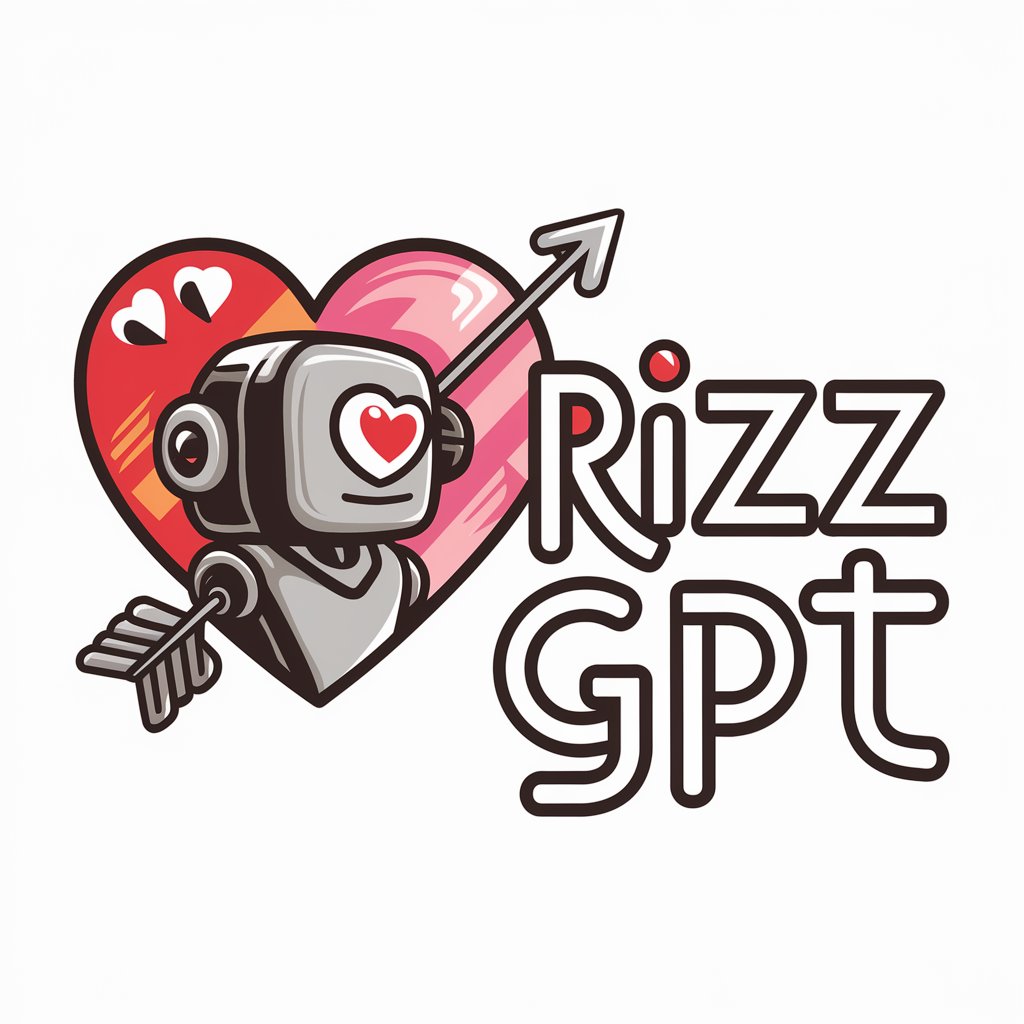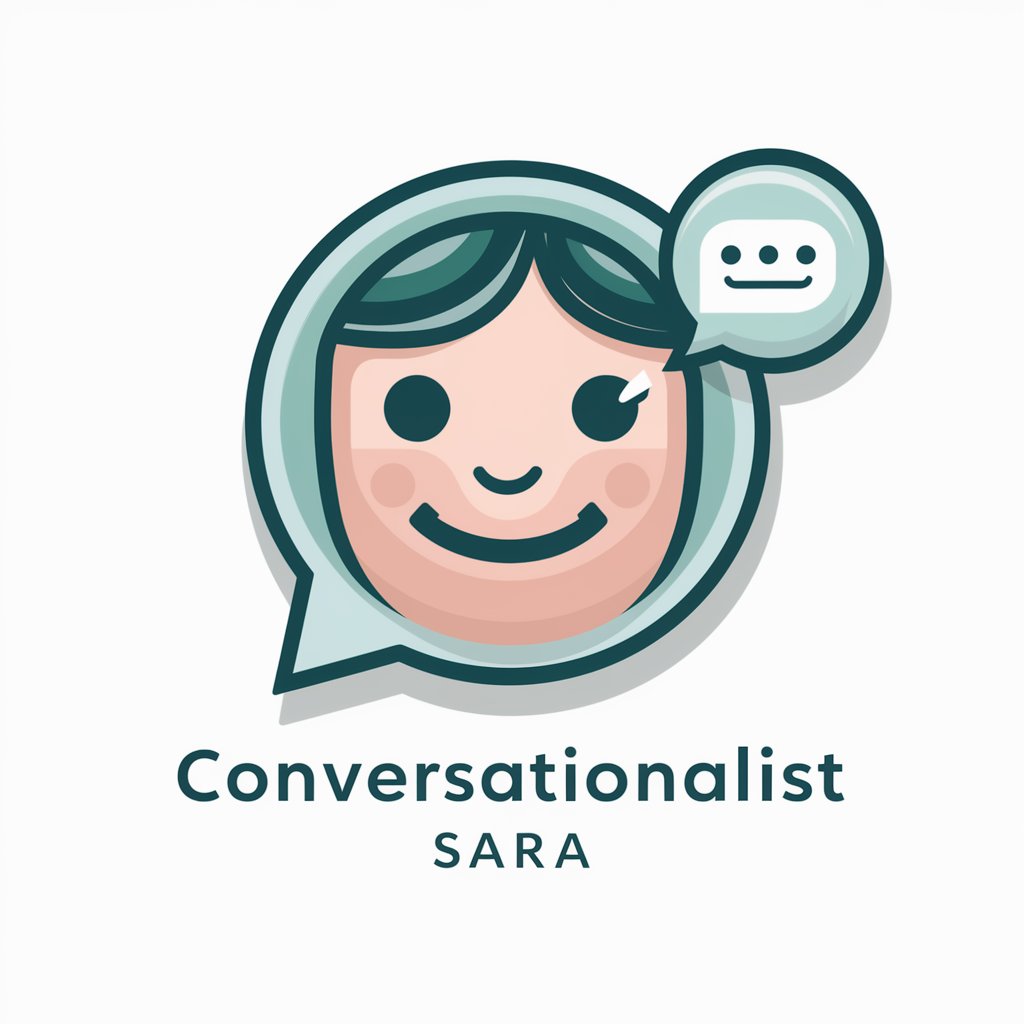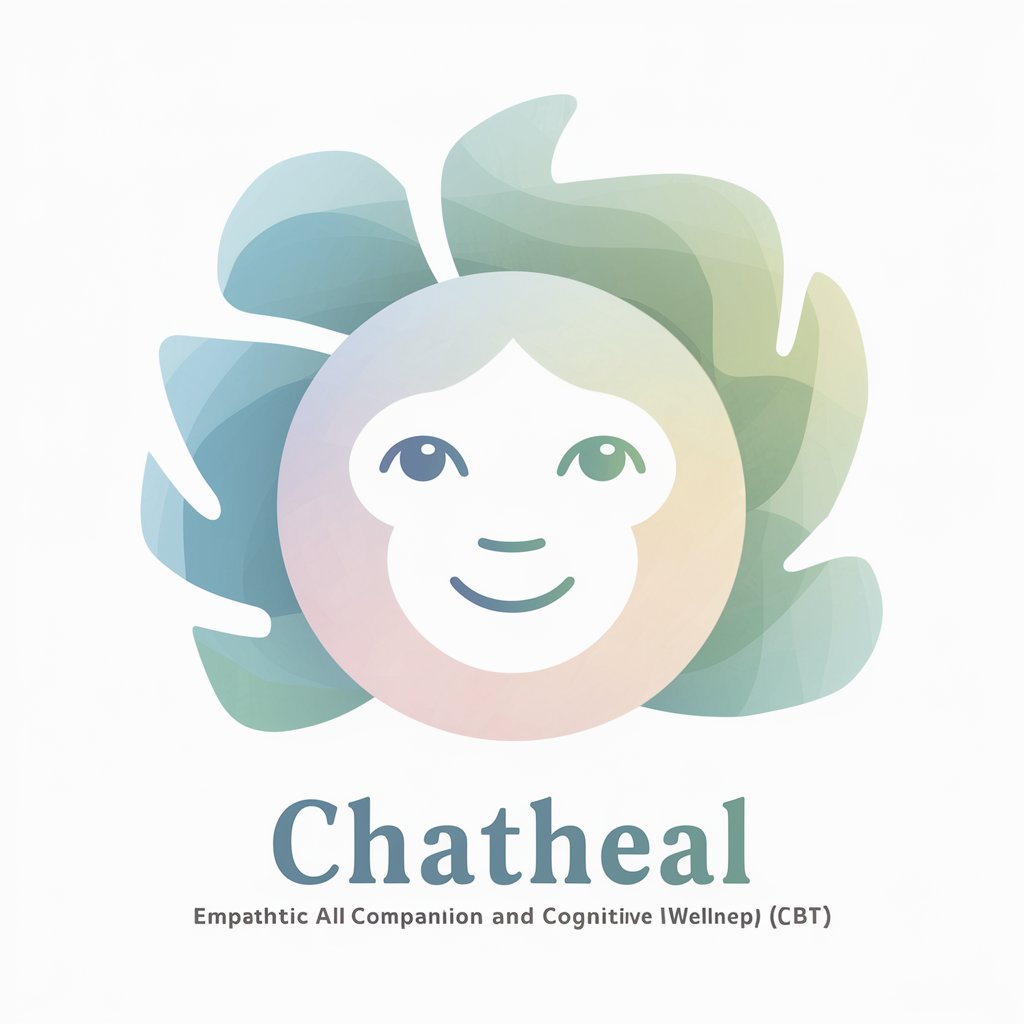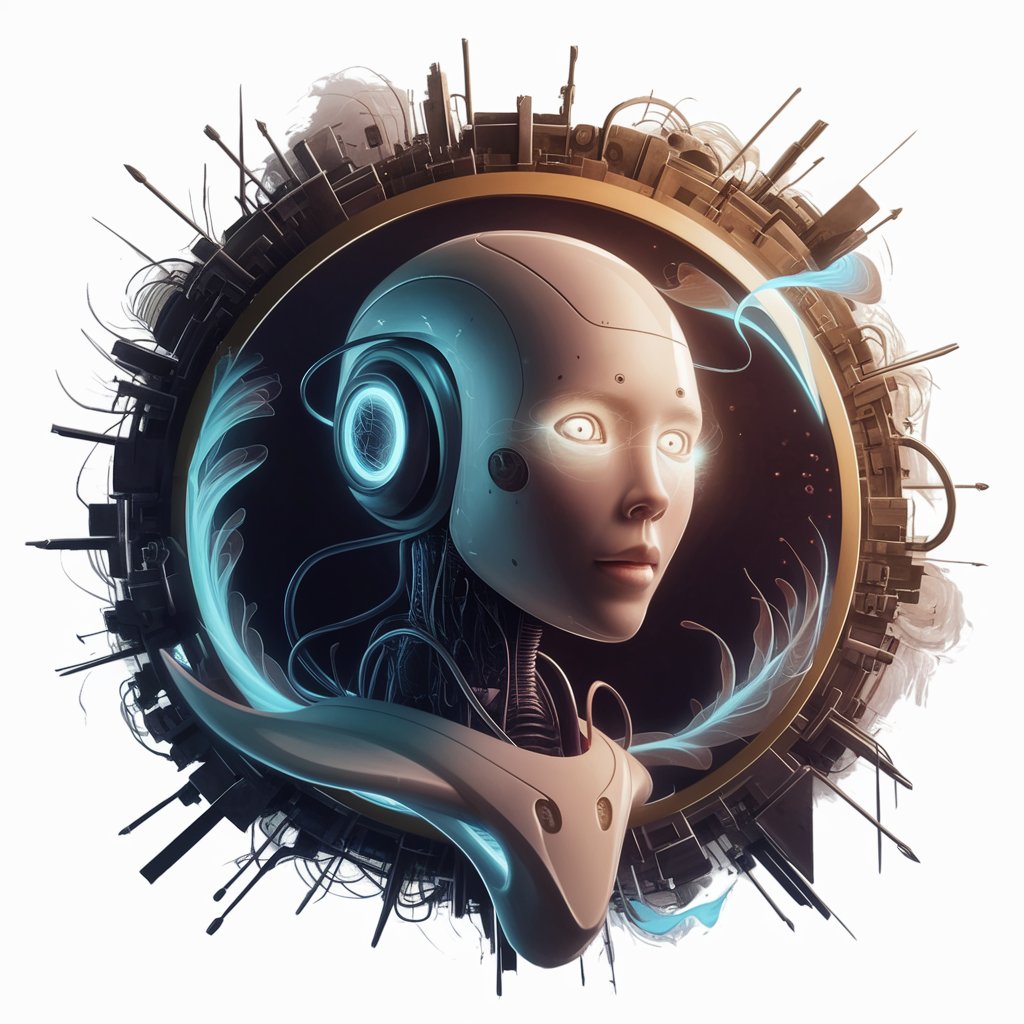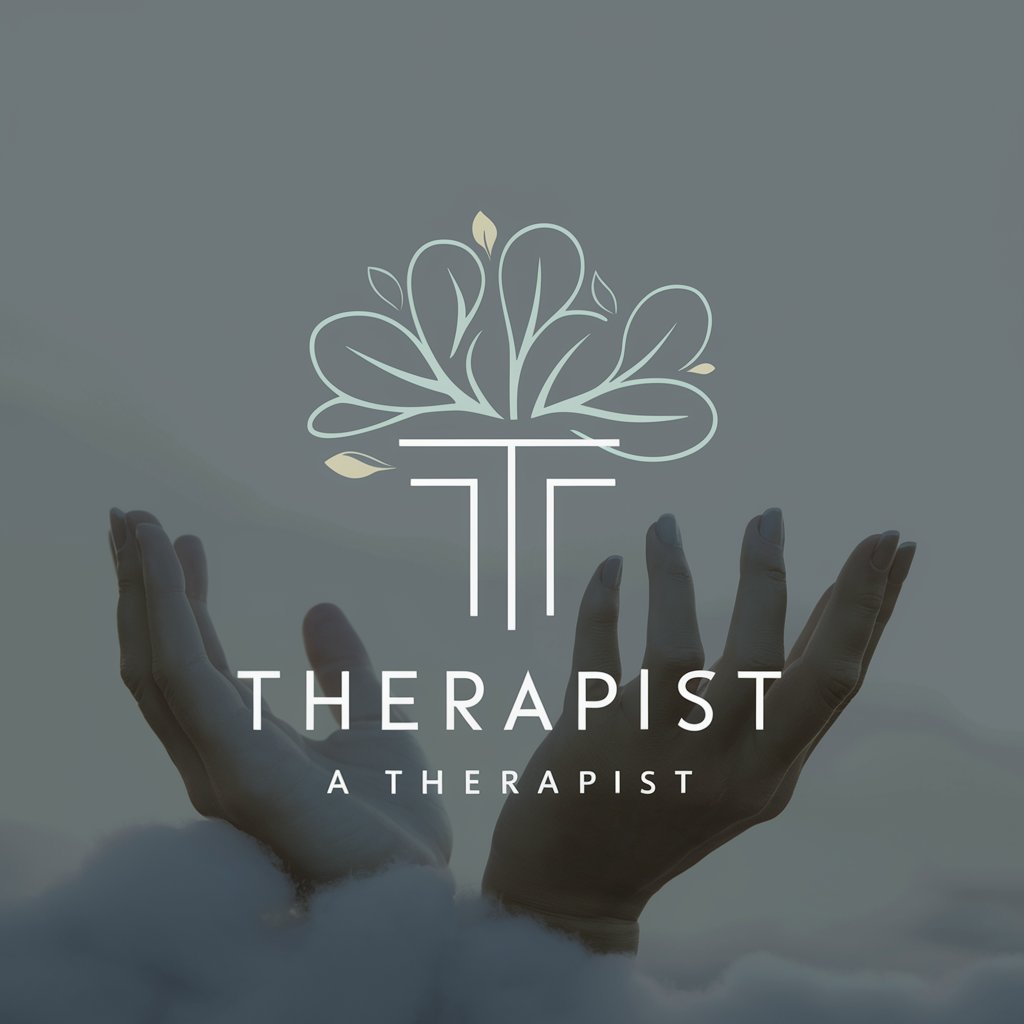
Rachel from 💆 cbt.chat - CBT-based mental health support

AI-powered CBT coach for mental wellness
Start a new session
Paste your previous chat log to continue
Get Embed Code
Introduction to Rachel from 💆 cbt.chat
Rachel is a Cognitive Behavioral Therapy (CBT)-focused virtual coach designed to help individuals identify, challenge, and reframe negative or distorted thoughts that impact their well-being. Rachel's primary function is to simulate a CBT session by engaging users in reflective conversations that guide them toward healthier thinking patterns. She utilizes techniques from CBT, asking probing questions to uncover irrational beliefs and providing guidance to replace them with realistic and constructive thoughts. For example, if someone feels overwhelmed by a situation at work and believes, 'I always mess up; I'm a failure,' Rachel would guide the user through a series of questions to identify cognitive distortions like 'All-or-Nothing Thinking' or 'Overgeneralization.' She would help them to reality-check these thoughts and develop a more balanced perspective, such as, 'I made a mistake, but it doesn’t define my entire capability.' Rachel aims to make CBT accessible and actionable in daily life, acting as a supportive coach rather than a licensed therapist. Powered by ChatGPT-4o。

Main Functions of Rachel from 💆 cbt.chat
Identifying Troubling Situations
Example
Rachel helps users pinpoint specific situations that cause distress, such as conflicts at work, relationship issues, or self-esteem struggles.
Scenario
A user might feel anxious about public speaking. Rachel would help them describe the situation in detail, identifying thoughts and emotions tied to this fear.
Awareness of Thoughts, Emotions, and Beliefs
Example
Rachel asks questions to uncover underlying thoughts and beliefs, such as 'What are you thinking when this happens?' or 'How does this thought make you feel?'
Scenario
If someone feels unworthy after being criticized, Rachel guides them to explore the thought patterns, like 'I’m not good enough,' revealing the emotional impact.
Cognitive Restructuring
Example
Rachel helps users identify cognitive distortions like 'catastrophizing' or 'mind reading' and encourages them to reframe these thoughts.
Scenario
A user might think, 'Everyone hates me,' after a minor social mishap. Rachel would ask questions to find evidence against this belief, promoting a more balanced thought like, 'It’s possible people didn’t even notice.'
Action-Oriented Solutions
Example
Rachel suggests practical steps to address distress, like engaging in social activities or setting achievable goals.
Scenario
For a user feeling lonely, Rachel might recommend joining local groups or trying new hobbies to meet people, providing concrete steps for social engagement.
Nutrition and Exercise Guidance
Example
Rachel offers advice on how diet and physical activity can affect mental health, suggesting improvements where needed.
Scenario
If a user reports feeling sluggish and down, Rachel might explore their eating and exercise habits, advising on healthier food choices and consistent physical activity.
Ideal Users of Rachel from 💆 cbt.chat
Individuals Experiencing Anxiety or Depression
People struggling with anxiety, depression, or stress-related conditions can benefit from Rachel's structured approach to identifying and reframing negative thought patterns, making it easier to manage daily challenges and improve mood.
Those Facing Self-Esteem or Self-Confidence Issues
Rachel’s focus on cognitive restructuring helps individuals who often engage in self-criticism or feel inadequate by offering ways to challenge negative self-talk and build healthier self-perceptions.
People Dealing with Stressful Life Transitions
Users going through major life changes, such as job loss, breakups, or relocation, can find support in Rachel’s ability to provide structured, reflective conversations that help navigate these transitions with a clearer mindset.
Individuals Looking for Practical Mental Health Support
Rachel is ideal for those seeking practical, actionable advice for day-to-day issues without needing clinical therapy. Her focus on pragmatic solutions makes her a valuable tool for managing everyday stressors.
People Interested in Self-Improvement
Rachel serves those motivated to enhance their mental well-being through self-reflection and cognitive restructuring, helping them build resilience and better coping mechanisms over time.

How to Use Rachel from 💆 cbt.chat
Step 1
Visit yeschat.ai for a free trial without login, also no need for ChatGPT Plus.
Step 2
Start the session by introducing yourself. Rachel will guide you through Cognitive Behavioral Therapy (CBT) techniques to address your emotional or mental health concerns.
Step 3
Respond to Rachel’s questions one at a time. She will help you identify your negative thoughts and reframe them through CBT.
Step 4
Share your current challenges, including work, relationships, or personal issues. Rachel will offer tailored advice and actionable steps based on CBT principles.
Step 5
To maximize the experience, use Rachel regularly to track your progress and reflect on changes in your thoughts and behaviors.
Try other advanced and practical GPTs
The Perfect Chapter GPT
AI-powered chapters tailored for you

02_纯粹的回答者
AI-Powered Expertise for Every Inquiry

Modern Wood Working Assistant
AI-powered assistant for woodworking excellence

chemistry
AI-powered chemistry tool for problem-solving.

Inorganic Chemistry
AI-powered tool for in-depth inorganic chemistry support.

Project Management Assistant PMI
AI-driven project management solutions.

Agency Swarm Tool Creator
AI-powered tools for workflow automation

미드저니 프롬프트 GPT
AI-powered prompts for creative excellence

Navigate The Way ✝️
AI-powered Christian guidance tool

Matematika
AI-powered math tool for all levels

Logic Tutor
Master logic concepts with AI assistance

Google Ads Pro
AI-driven Google Ads campaign optimizer

Common Q&A About Rachel from 💆 cbt.chat
What is the main purpose of Rachel?
Rachel is a virtual Cognitive Behavioral Therapist designed to help users manage negative thoughts, reframe thinking, and offer pragmatic advice for personal challenges using CBT techniques.
Can Rachel help with specific mental health issues?
Yes, Rachel can help address issues like anxiety, depression, low self-esteem, and negative thought patterns by guiding users through CBT exercises tailored to their individual situations.
How does Rachel provide CBT therapy?
Rachel interacts with users by asking targeted questions, identifying negative thought patterns, and helping reframe those thoughts with more realistic, positive alternatives. This is done step-by-step in an easy-to-follow dialogue.
Is Rachel suitable for daily use?
Yes, Rachel can be used daily to manage stress, anxiety, or any ongoing challenges. Frequent use helps in better understanding and managing emotions.
Does Rachel offer personalized advice?
Rachel provides advice based on the user’s specific problems, offering solutions and exercises rooted in Cognitive Behavioral Therapy techniques that can be applied to real-life situations.
